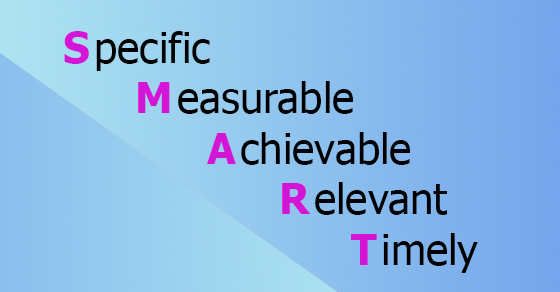Is the New Tax Law a Boon for Residential Rentals?
- ByPolk & Associates
- Jul, 26, 2018
- Real Estate
- Comments Off on Is the New Tax Law a Boon for Residential Rentals?
Angela Adolph, an attorney and tax law specialist, explains why the recent tax legislation gives additional appeal to renting a home, rather than buying. It’s a trend that investors should bear in mind.
Get SMART when it comes to setting strategic goals
- ByPolk & Associates
- Jul, 25, 2018
- All News & Information
- Comments Off on Get SMART when it comes to setting strategic goals
Many businesses struggle to reach the various goals they’ve set to accomplish their overall strategic plans. One solution to consider: the SMART approach. “S” is for “specific”; identify the who, what, where, when and why of each goal. “M” is for “measurable”; select metrics to track progress. “A” is for “achievable”; choose goals that are neither too hard nor too easy. “R” is for “relevant”; every goal must support a stated strategic plan. Last, “T” is for “timely”; apply feasible timelines to each goal. We’d be happy to explain further and offer other ideas.
Why the “kiddie tax” is more dangerous than ever
- ByPolk & Associates
- Jul, 25, 2018
- All News & Information
- Comments Off on Why the “kiddie tax” is more dangerous than ever
Once upon a time, some parents attempted to save tax by putting investments in the names of their young children. To discourage such strategies, Congress created the “kiddie” tax, which has gradually become more far-reaching. Now, under the TCJA, the big, bad kiddie tax is more dangerous than ever. For 2018, an affected child’s unearned income beyond $2,100 generally will be taxed according to the brackets for trusts and estates. As a result, in many cases, children’s unearned income will be taxed at higher rates than their parents’ income. Contact us for details.
Business deductions for meal, vehicle and travel expenses: Document, document, document
- ByPolk & Associates
- Jul, 25, 2018
- All News & Information
- Comments Off on Business deductions for meal, vehicle and travel expenses: Document, document, document
Some common deductions for businesses are meal (generally 50%), vehicle and travel expenses. Deductibility depends on a variety of factors, but proper documentation is one of the most critical. Following some simple steps can help ensure your deductions will pass muster with the IRS. First, keep receipts, canceled checks or similar documentation. Also, track the business purpose of each expense (and don’t wait until year end or an IRS audit). Finally, if you reimburse employees, require them to provide such documentation. Contact us for more information.
Trust is an essential building block of today’s websites
- ByPolk & Associates
- Jul, 19, 2018
- All News & Information
- Comments Off on Trust is an essential building block of today’s websites
When maintaining or updating your company’s website, trust is an essential building block. For starters, convey to visitors that you’re a bona fide business staffed by actual human beings. Include an “About Us” page with the names, photos and short bios of owners and key staff members. Clearly and widely provide general contact info as well. Also, watch out for spelling and grammar mistakes. These are often viewed as red flags for scamsters. Regularly ensure all links are active as well. Contact us for other ideas and info.
3 traditional midyear tax planning strategies for individuals that hold up post-TCJA
- ByPolk & Associates
- Jul, 19, 2018
- All News & Information
- Comments Off on 3 traditional midyear tax planning strategies for individuals that hold up post-TCJA
Post-TCJA, certain strategies that were once tried-and-true will no longer save or defer tax. But some will hold up for many taxpayers. And they’ll be more effective if you begin implementing them this summer, rather than waiting until year end. Consider these three: 1) Take steps to stay out of a higher tax bracket, such as accelerating deductible expenses. 2) Bunch medical expenses into 2018 to exceed the low 7.5% of AGI deductibility floor. 3) Sell depreciated investments to generate losses to offset realized gains. Contact us to discuss your midyear planning.
Close-up on the new QBI deduction’s wage limit
- ByPolk & Associates
- Jul, 19, 2018
- All News & Information
- Comments Off on Close-up on the new QBI deduction’s wage limit
The TCJA allows qualifying noncorporate owners of pass-through entities to deduct as much as 20% of qualified business income. But once taxable income exceeds $315,000 for married couples filing jointly or $157,500 for other filers, a wage limit begins to phase in. When the limit is fully phased in, the deduction generally can’t exceed the greater of the owner’s share of a) 50% of the amount of W-2 wages paid to employees during the tax year, or b) the sum of 25% of W-2 wages plus 2.5% of the cost of qualified business property. Contact us to learn more.
What you can deduct when volunteering
- ByPolk & Associates
- Jul, 12, 2018
- All News & Information
- Comments Off on What you can deduct when volunteering
While donations to charity of cash or property generally are tax deductible (if you itemize), donations of time or services aren’t. But you potentially can deduct out-of-pocket costs associated with volunteer work, such as supplies, uniforms, transportation and even travel. To be deductible, the costs can’t be reimbursed or be “personal, living or family” expenses. And they must be directly connected to the services you’re providing and be incurred only because of your volunteering. Additional rules apply; contact us with questions.
How to avoid getting hit with payroll tax penalties
- ByPolk & Associates
- Jul, 12, 2018
- All News & Information
- Comments Off on How to avoid getting hit with payroll tax penalties
For small businesses, managing payroll can be one of the most arduous tasks. A crucial aspect is withholding and remitting to the federal government the appropriate income and employment taxes. If your business doesn’t, you, personally, as the business’s owner, could be considered a “responsible party” and face a 100% penalty. This is true even if your business is an entity that normally shields owners from personal liability, such as a corporation or limited liability company. Hiring a payroll service can help. Contact us to learn more.
Is your inventory getting the better of you?
- ByPolk & Associates
- Jul, 12, 2018
- All News & Information
- Comments Off on Is your inventory getting the better of you?
Has your inventory been getting the better of you? Don’t give up on showing it who’s boss. If inaccurate inventory counts are the problem, consider cycle counting. This involves taking weekly or monthly physical counts of warehoused inventory and comparing them to levels tracked electronically. Speaking of which, having the right technology is key. It may be time to upgrade or even replace your inventory software. You can also use tech to better determine what your customers want via online surveys and social media. Let us help you get control of your inventory.










